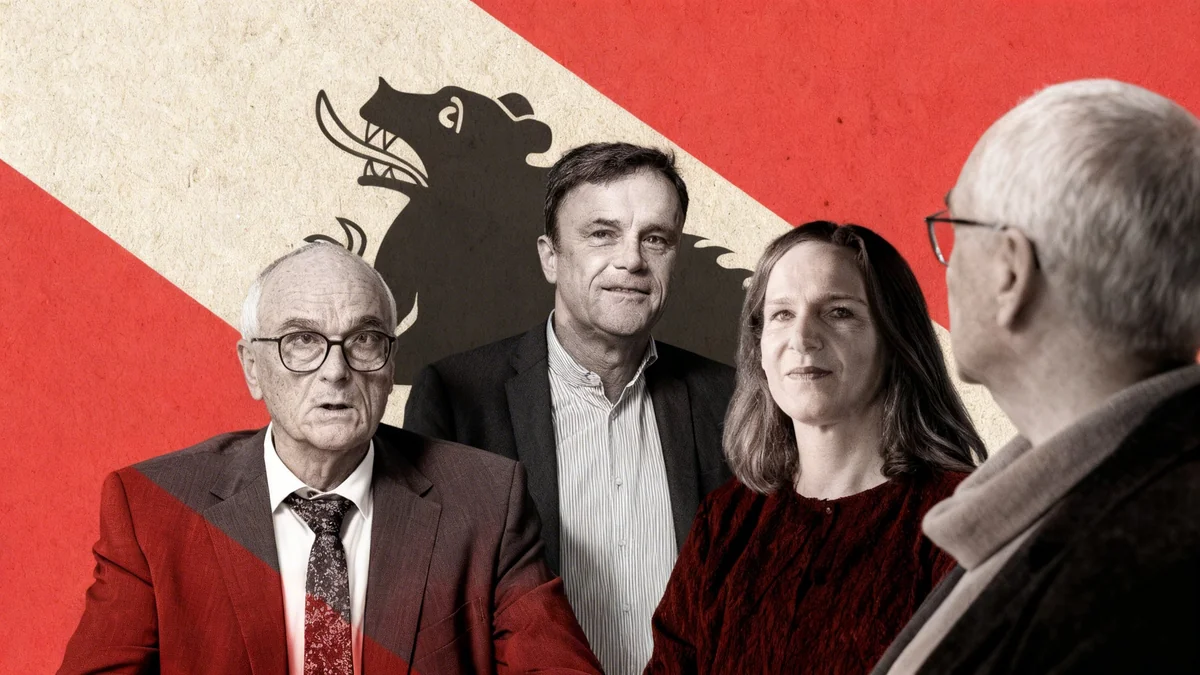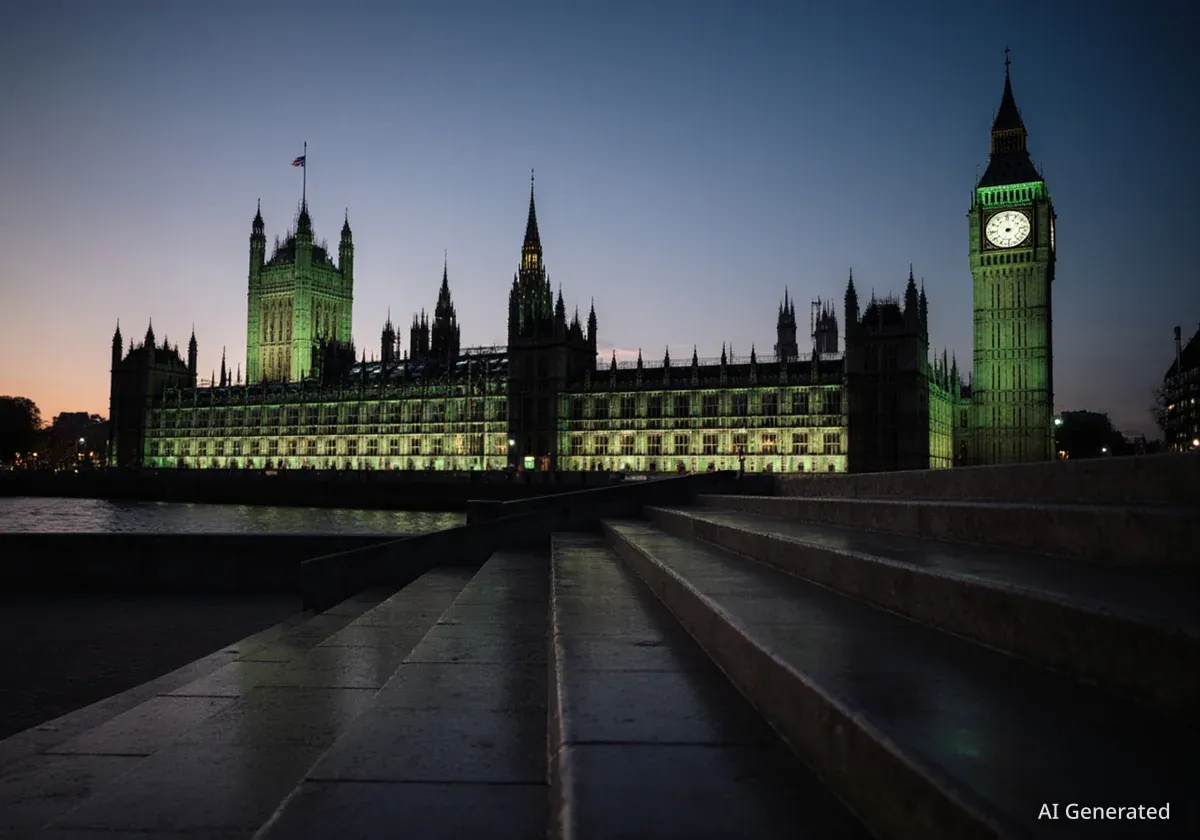A petition calling for Switzerland to recognize Palestine as a state was delivered to the government and parliament in Bern on Monday. The petition, titled "Switzerland Must Also Recognize Palestine," gathered 13,750 signatures. Zürich-based writer Thomas Meyer initiated the signature collection.
Meyer confirmed the handover of the signatures to the Keystone-SDA news agency. He stated that he launched the petition a year ago. At that time, only a few hundred signatures were collected. He noted that a second attempt, following many deaths, proved more successful.
Key Takeaways
- Petition with 13,750 signatures delivered in Bern.
- Calls for Switzerland to recognize Palestine as a state.
- Initiated by Zürich writer Thomas Meyer.
- Meyer emphasizes a two-state solution for peace.
- Highlights Switzerland's humanitarian tradition.
Advocating for a Two-State Solution
Thomas Meyer, a Jewish writer, has publicly stated his reasons for initiating the petition. His argument centers on the historical struggle for statehood.
"We Jews had to wait a long time for our own state and shed much blood in the process. For the same reasons, it is now time for the Palestinians to also receive their state," Meyer was quoted as saying in a media release.
This statement underscores the core message of the petition. It links the Jewish historical experience to the current Palestinian aspirations for statehood.
The petition argues that peace in the region can only be achieved through a two-state solution. This approach involves the creation of an independent Palestinian state alongside Israel. Many international bodies and governments support this framework as a path to lasting peace.
Switzerland's Role and Humanitarian Tradition
The petition specifically urges Switzerland to uphold its humanitarian tradition. It calls on the Swiss government to formally recognize Palestine as a state. Switzerland has a long history of neutrality and humanitarian efforts on the global stage.
This tradition often involves mediating conflicts and providing aid. Supporters of the petition believe recognizing Palestine aligns with these values. They see it as a step towards justice and stability in the Middle East.
Petition Facts
- Signatures Collected: 13,750
- Initiator: Thomas Meyer, Zürich writer
- Delivery Date: Monday
- Recipient: Swiss Government and Parliament
- Core Demand: Recognition of Palestine as a state
The Campaign's Journey
Meyer explained the petition's progression. The initial launch a year ago saw limited success. Only a few hundred signatures were gathered at that time. This suggests a period of lower public engagement or awareness regarding the issue.
However, the campaign gained significant momentum during its second phase. Meyer attributed this increased support to recent events. He specifically mentioned the "countless dead later," indicating that the ongoing conflict played a role in mobilizing more signatories.
This shows how current events can influence public opinion and participation in political initiatives. The number of signatures, 13,750, represents a considerable public interest in the matter within Switzerland.
International Context of Recognition
Several countries around the world already recognize Palestine as a state. This includes a majority of United Nations member states. However, key Western nations, including many in Europe, do not yet recognize it. Switzerland's position is therefore part of a broader international debate.
Global Recognition Status
As of late 2023, 139 out of 193 UN member states recognize the State of Palestine. This includes countries across Africa, Asia, and South America. In Europe, countries like Sweden have recognized Palestine, while others, such as France and Germany, have not. This highlights the complex diplomatic landscape surrounding the issue.
The move by some European countries to recognize Palestine has put pressure on others. It has also intensified discussions within national parliaments. The petition in Switzerland reflects this growing international conversation.
Implications for Swiss Foreign Policy
The delivery of this petition places the issue of Palestine recognition directly before Swiss policymakers. The government and parliament will now need to consider the petition's demands. This could lead to debates about Switzerland's foreign policy stance on the Israeli-Palestinian conflict.
Recognizing Palestine would be a significant shift for Switzerland. It would align the country with a larger group of nations. It would also signal a stronger position on the future of the region.
Conversely, declining to recognize Palestine would maintain the current status quo. It would also likely disappoint the petition's supporters. The decision will have implications for Switzerland's diplomatic relations and its image as a neutral humanitarian actor.
The Role of Public Petitions
Public petitions are a vital tool in Swiss democracy. They allow citizens to directly influence political discourse. Petitions with a substantial number of signatures often prompt official responses and parliamentary discussions.
The 13,750 signatures gathered for this petition are significant. They demonstrate a measurable level of public support. This support demands attention from the federal authorities in Bern.
The process ensures that citizens' concerns can reach the highest levels of government. It also provides a platform for various viewpoints to be formally presented and considered.
Looking Ahead: Government Response
The next step involves the Swiss government and parliament reviewing the petition. They will assess its demands and consider potential actions. This process typically involves committees and expert consultations.
There is no fixed timeline for a response. However, the political pressure generated by such a large number of signatures often expedites the review. The decision will impact Switzerland's diplomatic standing and its relationship with both Israelis and Palestinians.
The outcome will be closely watched by international observers. It will also be a key indicator of Switzerland's evolving foreign policy in the Middle East.




